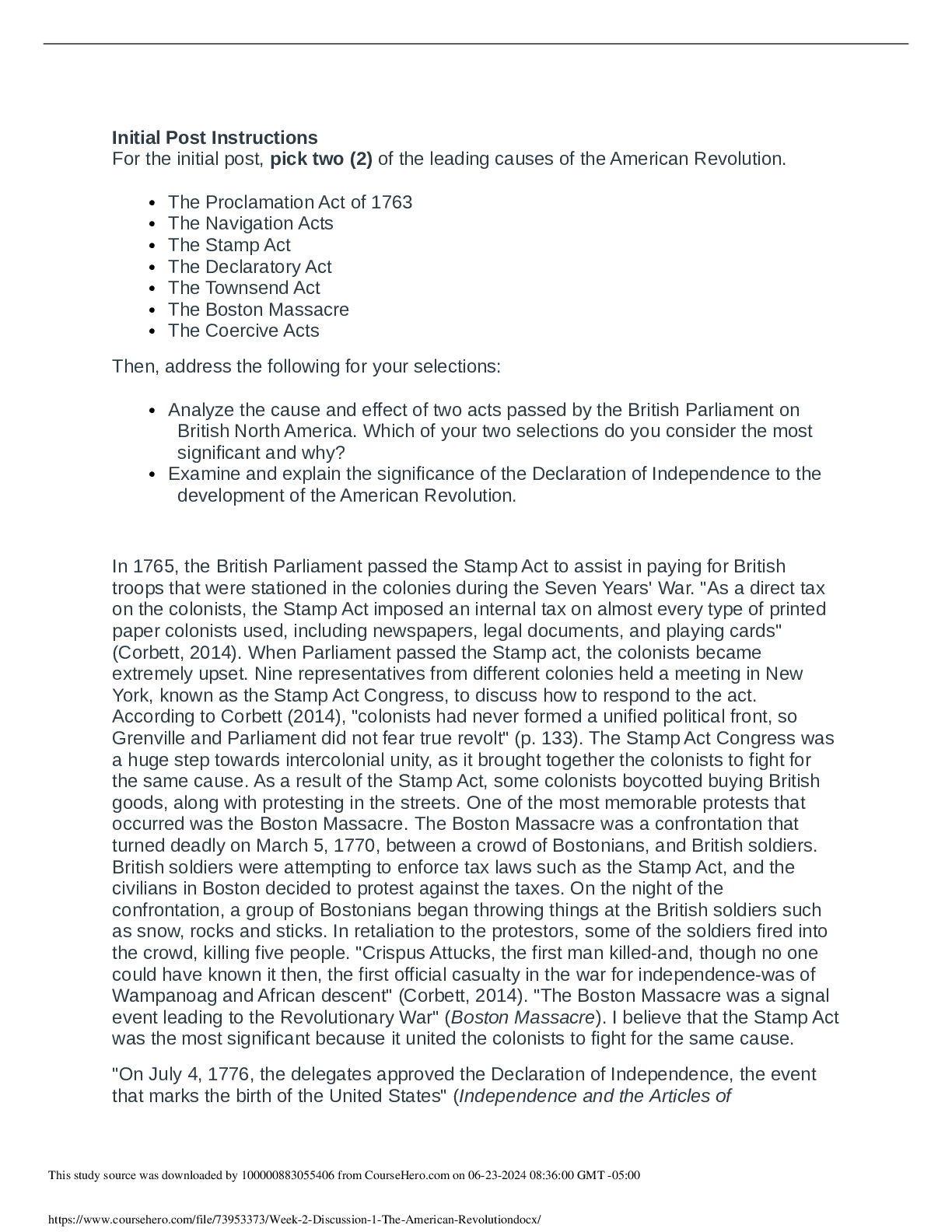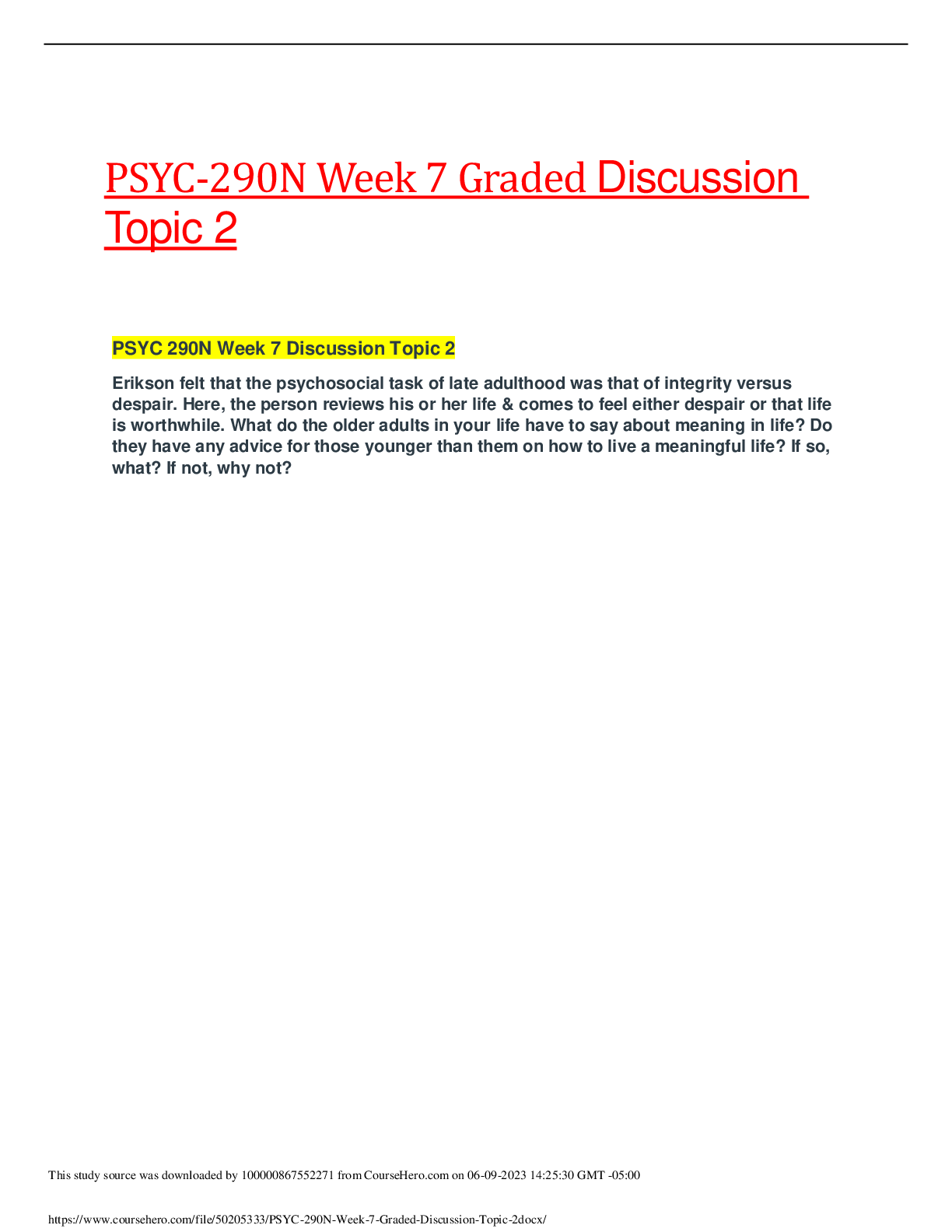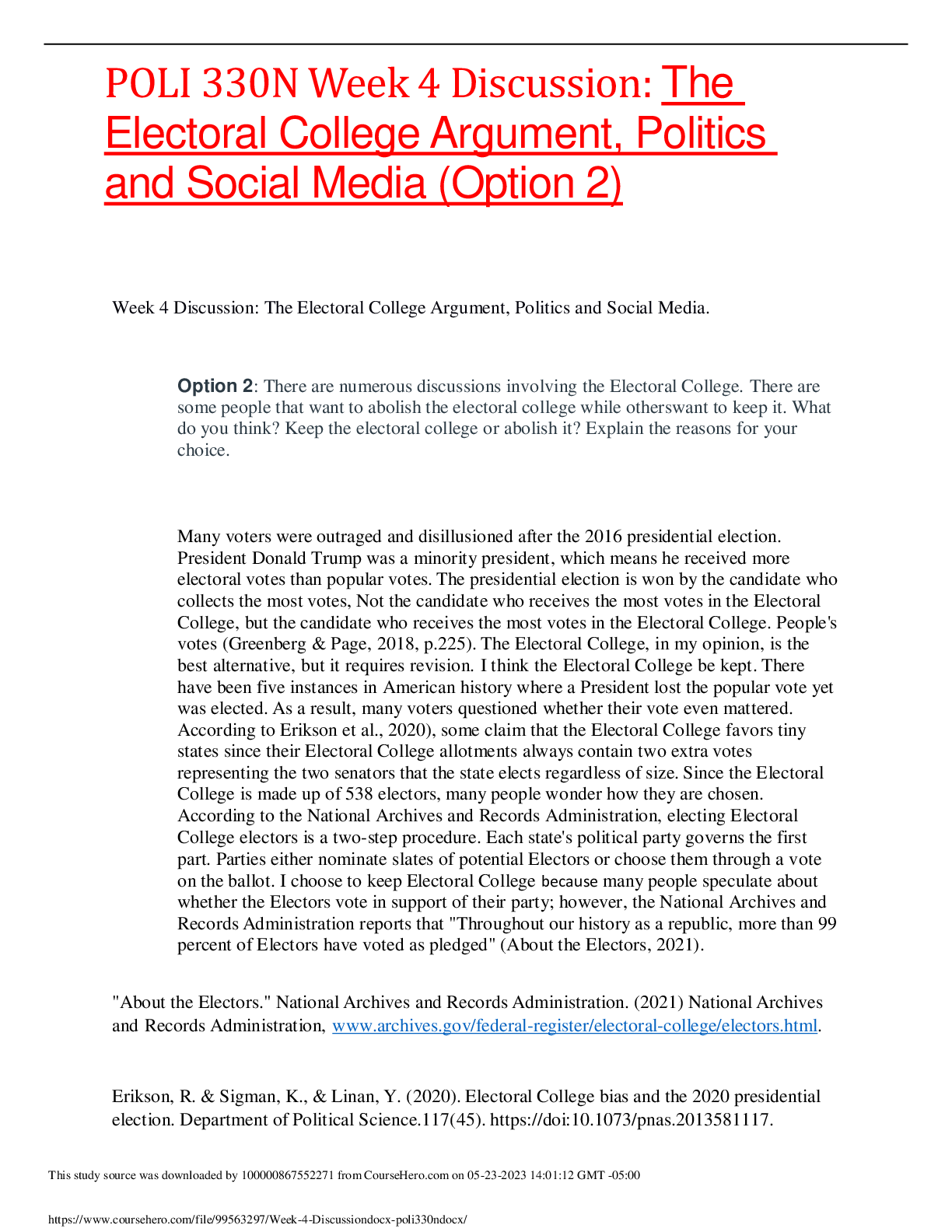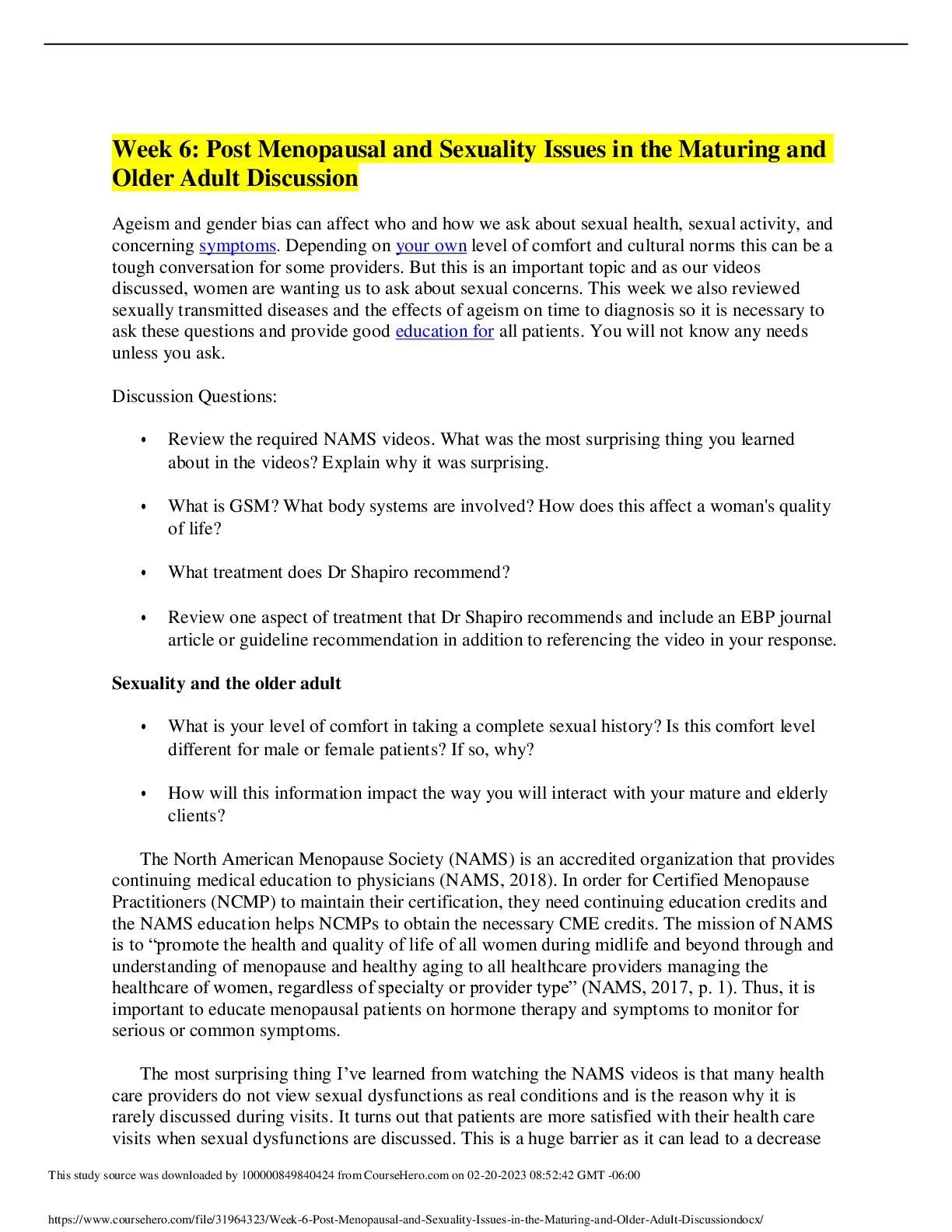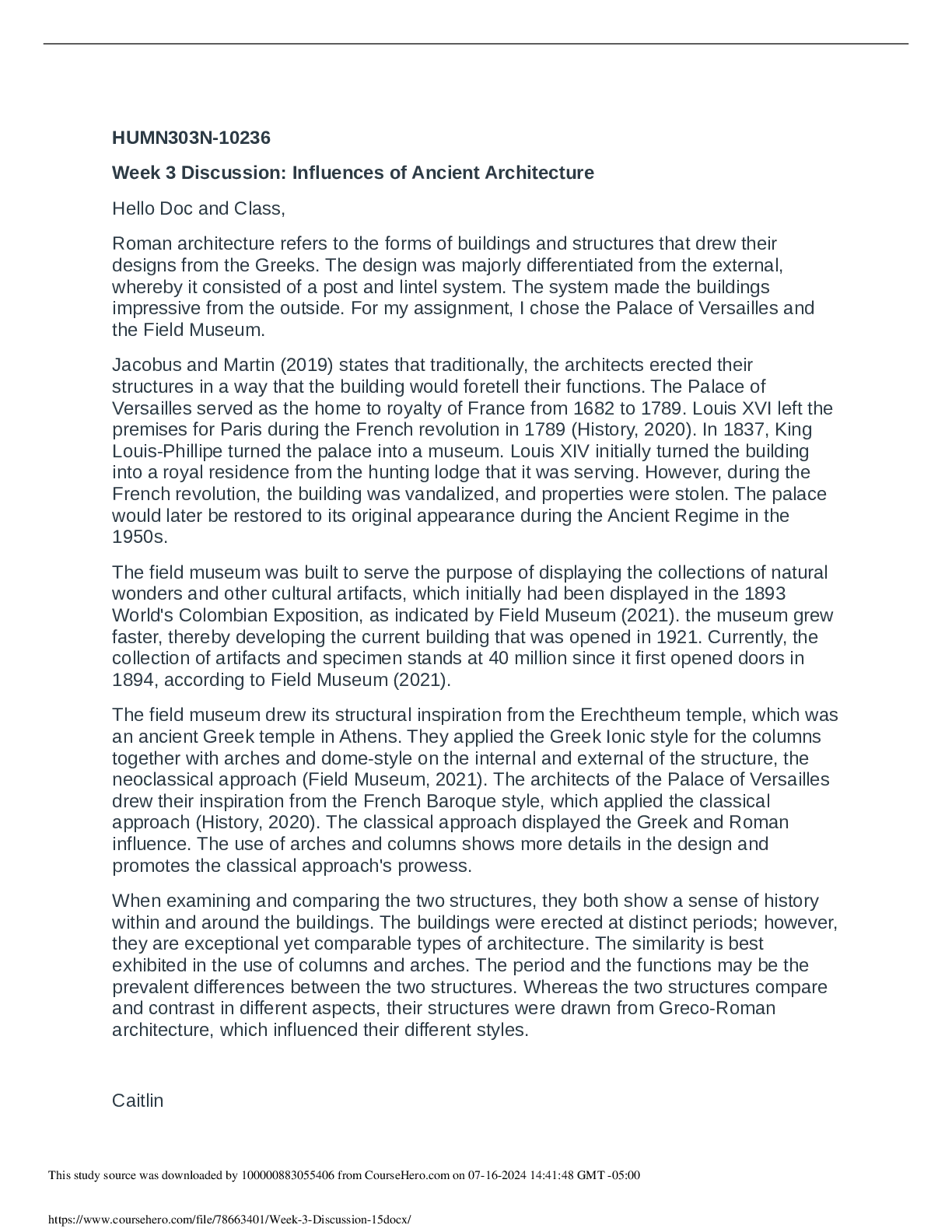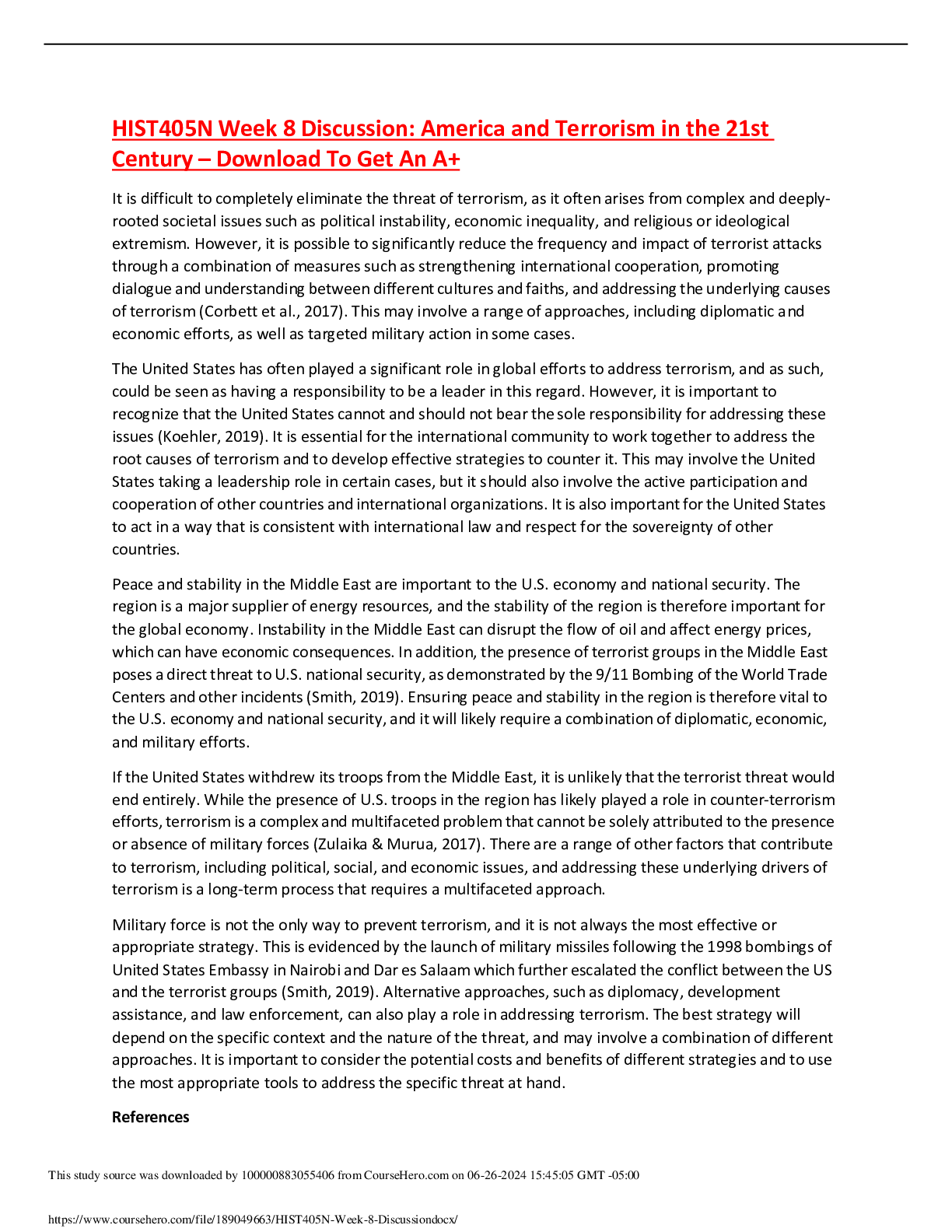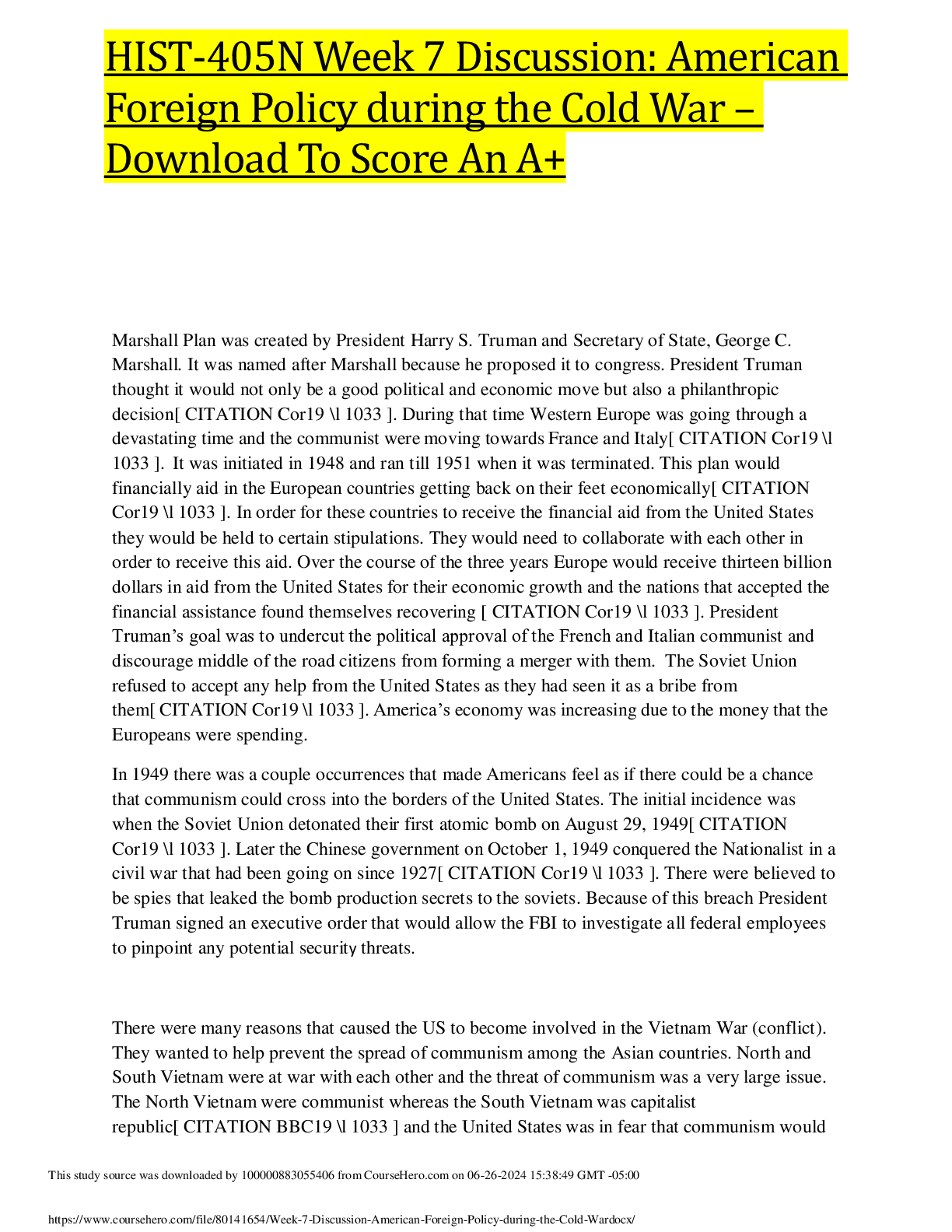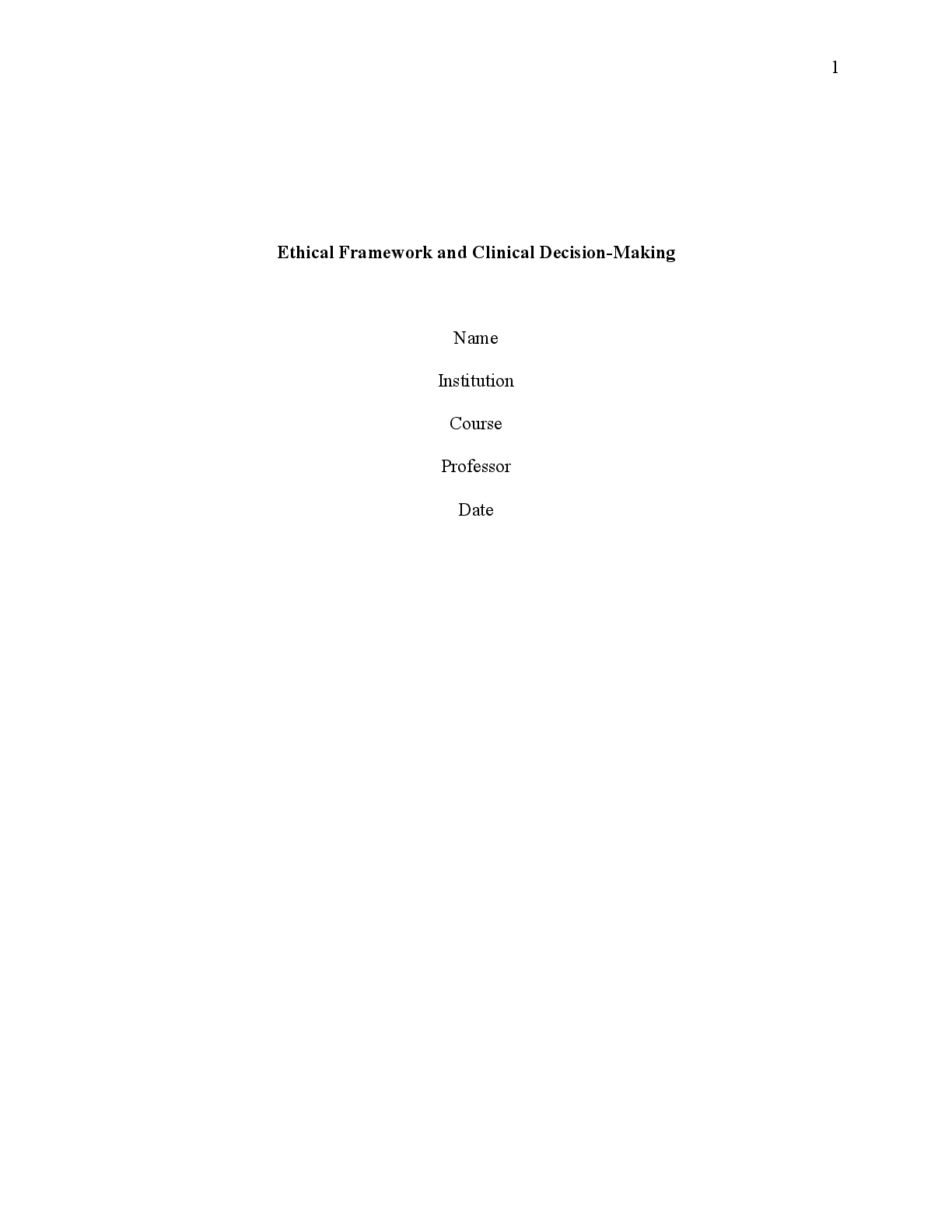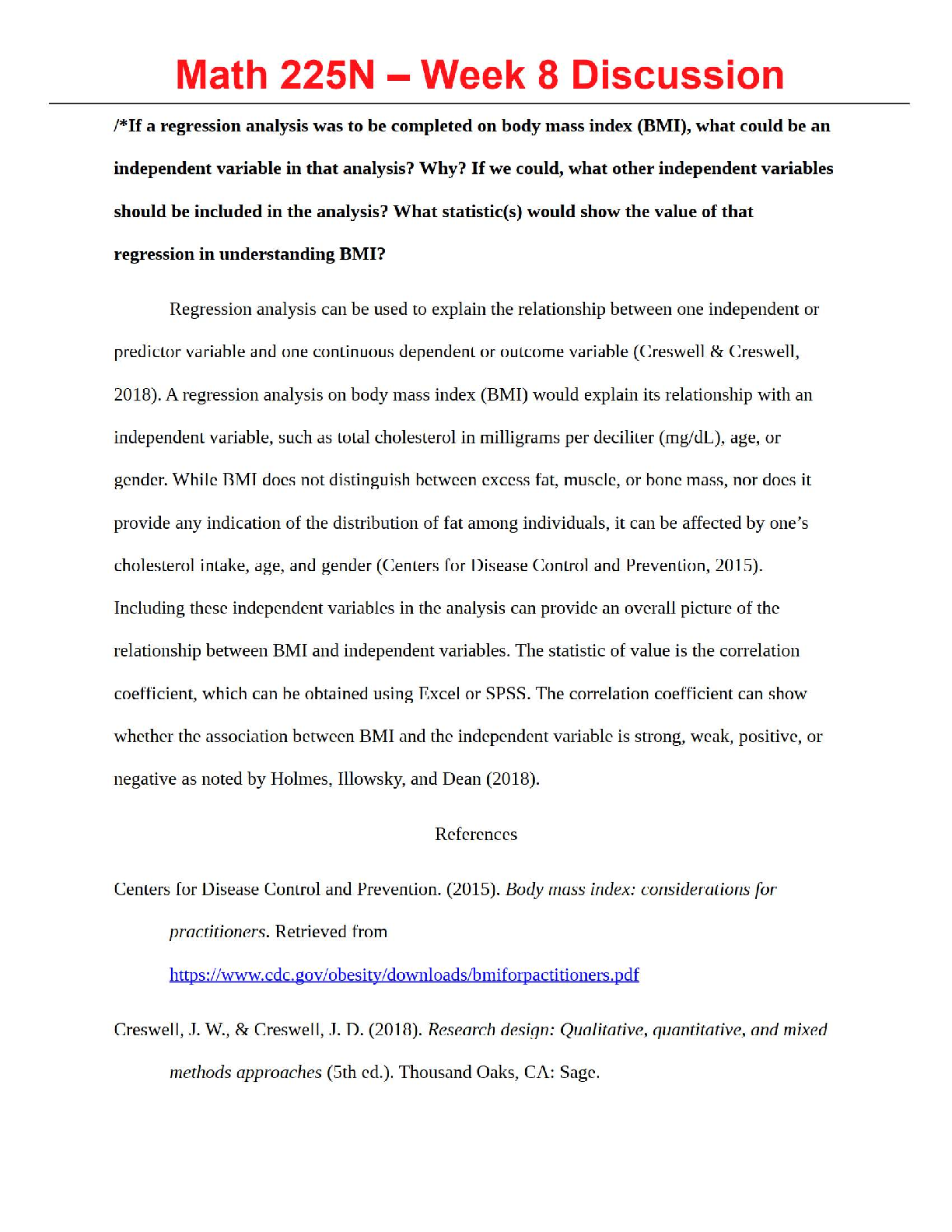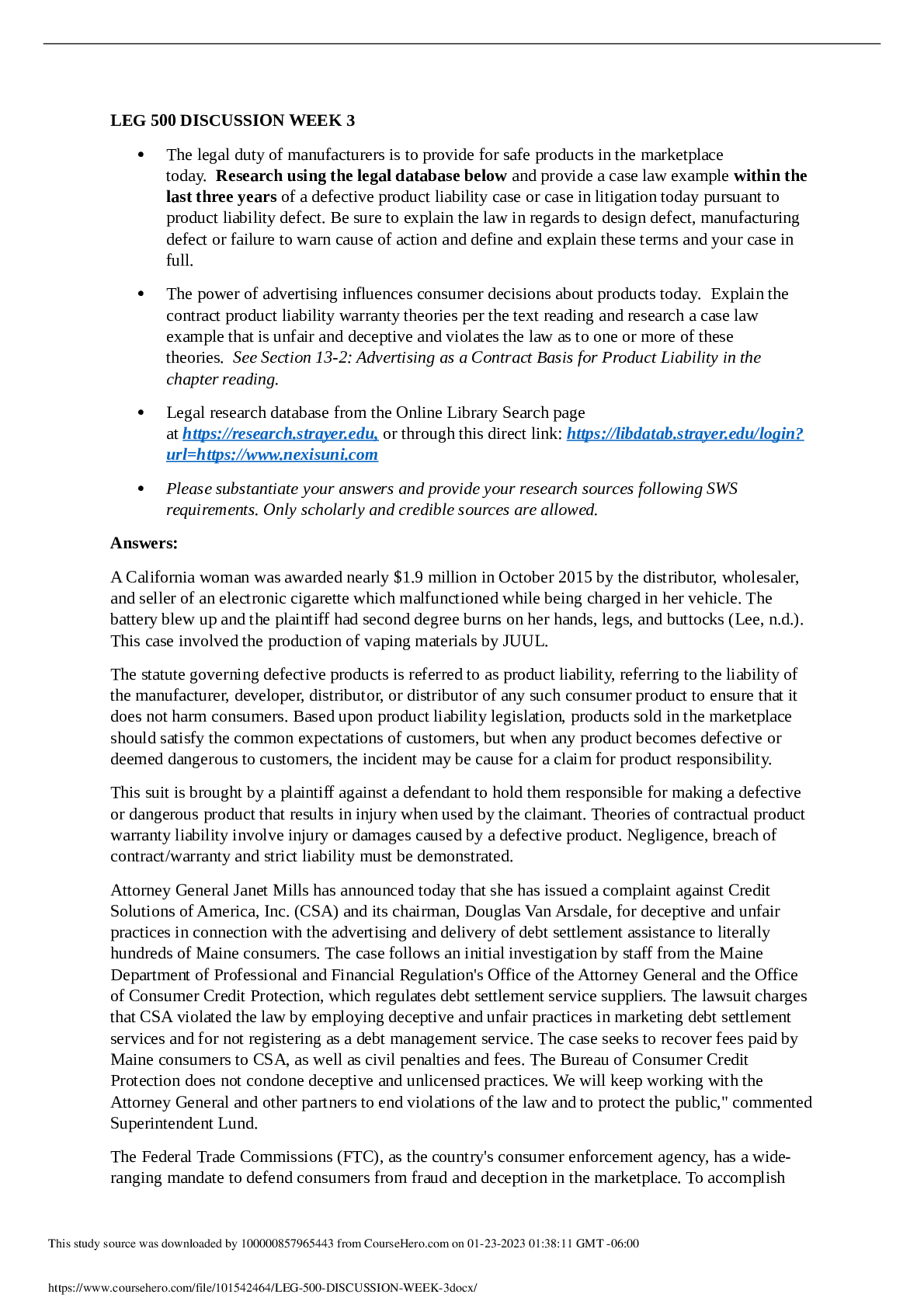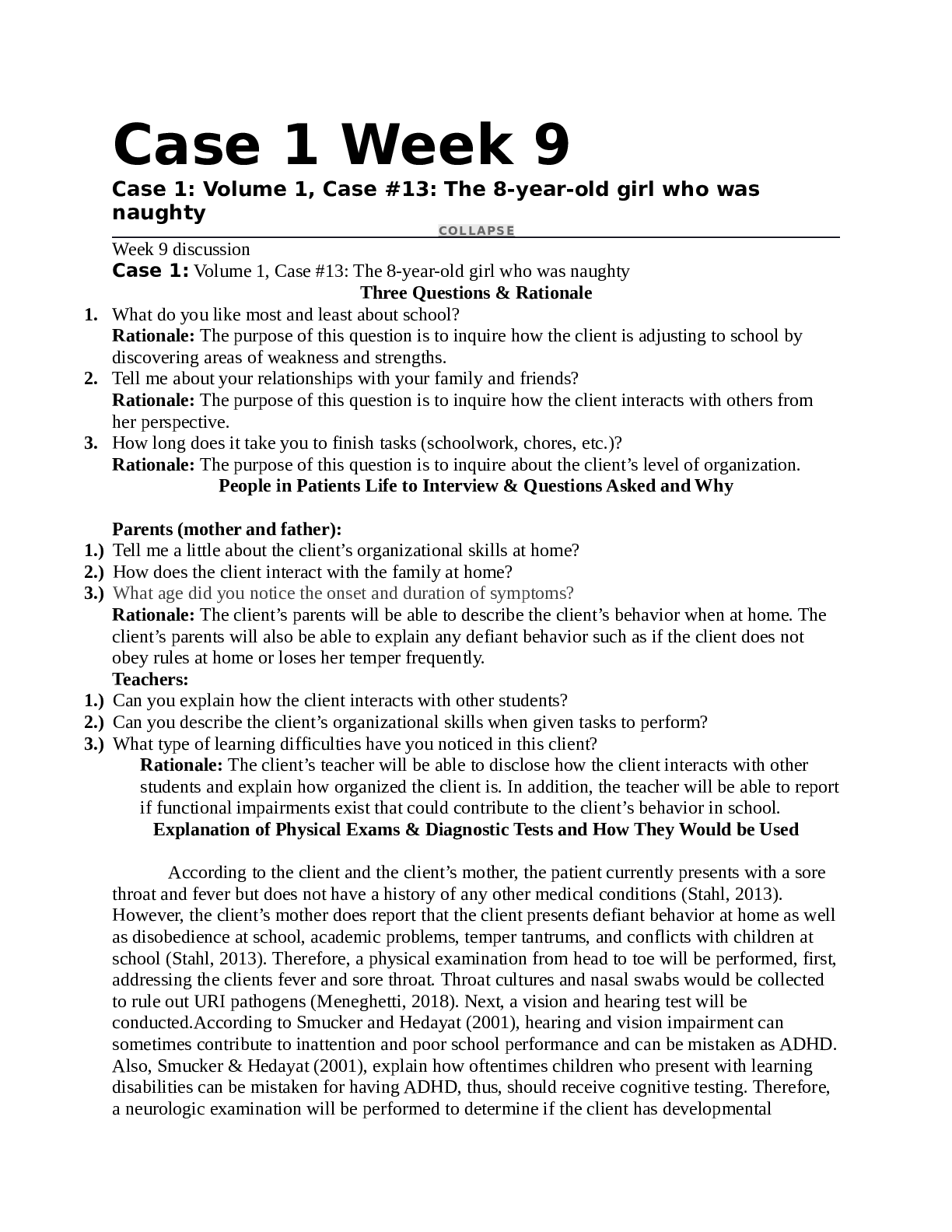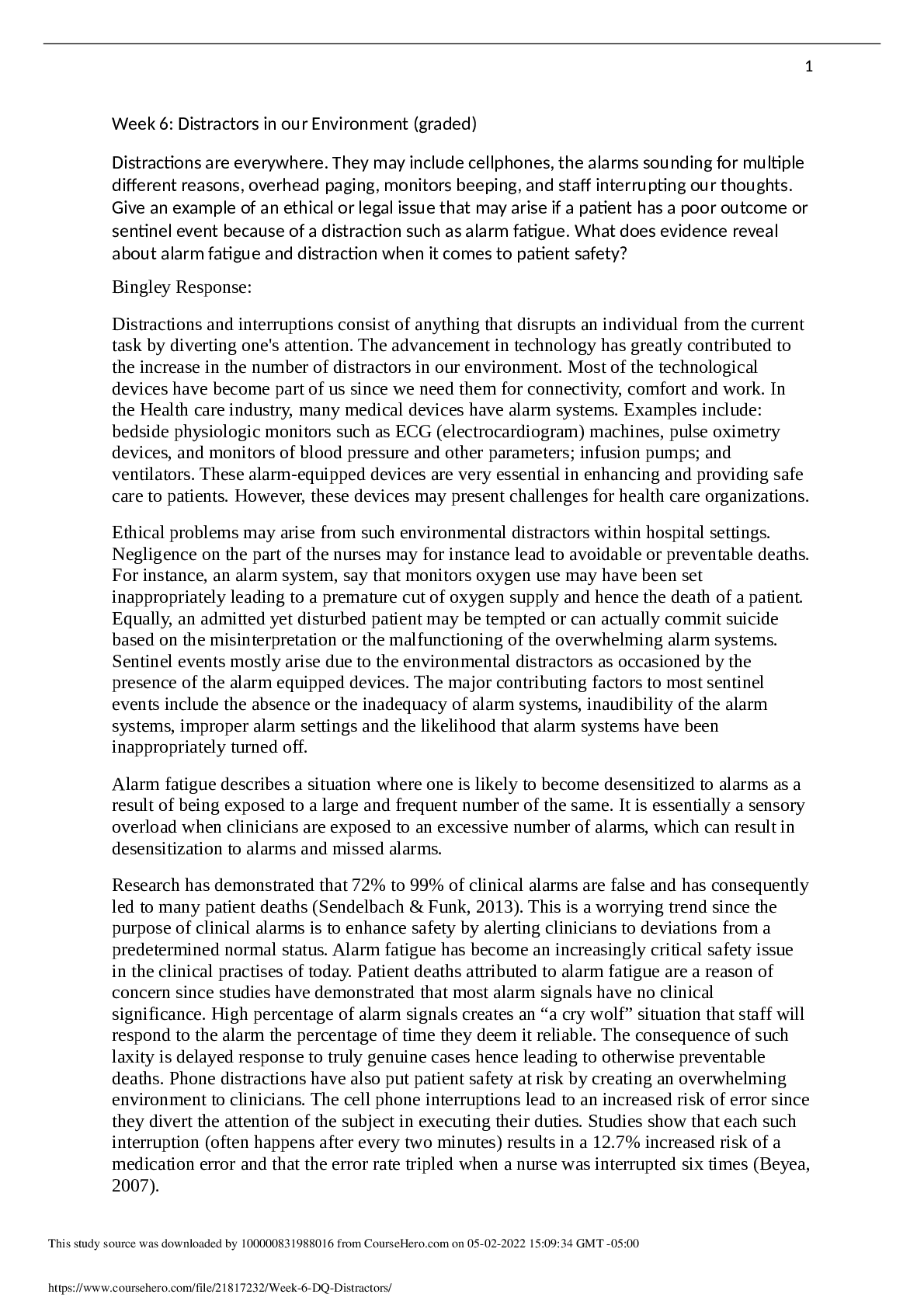Project Management > DISCUSSION POST > PROJ-420 Week 4 Discussion Question 2 – The Work Breakdown Structure - Discussion Well Elaborated (All)
PROJ-420 Week 4 Discussion Question 2 – The Work Breakdown Structure - Discussion Well Elaborated
Document Content and Description Below
Week 4 Discussion _ Work Breakdown Structure Work Breakdown Structure (WBS) within project management In project management, work breakdown structure (WBS) is a visual and hierarchical outl ... ine for guiding a given project (Zecheru & Olaru, 2016). Visualization helps in proper resource allocation based on mission critical activities, related sub-tasks and inter-dependence among them. In addition, WBS is important in project management because it allows project managers in assigning roles, resource allocation, monitoring and controlling the project. Hence, WBS ensures that project deliverables are concrete and accurate while allowing project team to understand activities to be completed within every deliverable. WBS vs. project requirements Project requirements present a description of necessary steps for creating a project. In addition, project requirements are identified in the designing phase for the project team to move to the planning phase. Project requirements also begin with business needs identification. In contrast, the WBS outlines project tasks into segments. Hence, the WBS helps a project team to attain expected objectives. Unlike project requirements, WBS is created to allow the project team in assigning sub-deliverables. Even though WBS is less detailed than project requirements, it reflects milestones to monitor as the project progresses (Zecheru & Olaru, 2016). Scope creep and how to manage it Scope creep is used in project management to define the uncontrollable growth in the size of project scope, contributing to a higher project cost and variations in estimated timeline (Madhuri, Suma & Mokashi, 2018). The scope creep can occur due to unclear project requirements, goals and ineffective communication among project tea. Even though the scope creep can be managed at the beginning of the project, there are some measures to implement as the project progresses, for example, by clearly and concisely prioritizing project goals, requirement and defined scope (Madhuri et al., 2018). Another way of managing scope creep is by having a single point of contact for the project team to prevent conflicting comments. To mitigate scope risk, it is vital to prioritize project objectives, requirements and have a defined scope. Moreover, scope risks can be mitigated by having a single contact person in the project. I also experienced a scope creep at my workplace, especially when my supervisor failed to grasp how to meet the new marketing campaign project goals. Specifically, the supervisor failed to plan different tasks that would be accomplished as part of the project. As soon as we started working on the marketing campaign tasks, the unplanned activities emerged affecting the project direction through increased costs and failure to complete the project within the project deadline. References Madhuri, K. L., Suma, V., & Mokashi, U. M. (2018). A triangular perception of scope creep influencing the project success. International Journal of Business Information Systems, 27(1), 69-85.retrieved from https://pdfs.semanticscholar.org/6cd4/6e22de46a68d57a017f63ec905df8976df74.pdf Zecheru, V., & Olaru, B. G. (2016). Work Breakdown Structure (WBS) in project management. Review of International Comparative Management/Revista de Management Comparate International, 17(1). Retrieved from www.rmci.ase.ro/no17vol1/06.pdf [Show More]
Last updated: 2 years ago
Preview 1 out of 2 pages
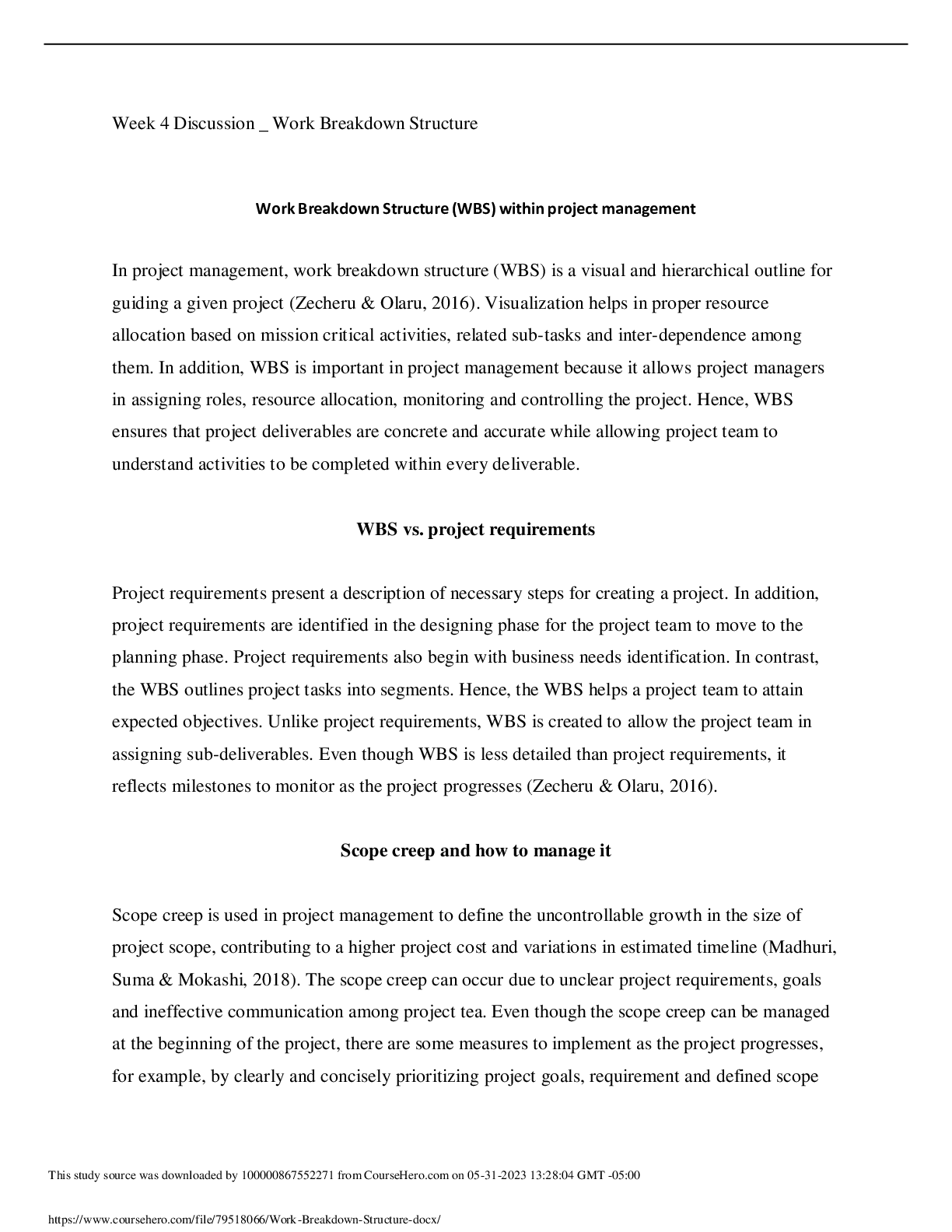
Buy this document to get the full access instantly
Instant Download Access after purchase
Buy NowInstant download
We Accept:

Reviews( 0 )
$10.00
Can't find what you want? Try our AI powered Search
Document information
Connected school, study & course
About the document
Uploaded On
May 31, 2023
Number of pages
2
Written in
All
Additional information
This document has been written for:
Uploaded
May 31, 2023
Downloads
0
Views
152

